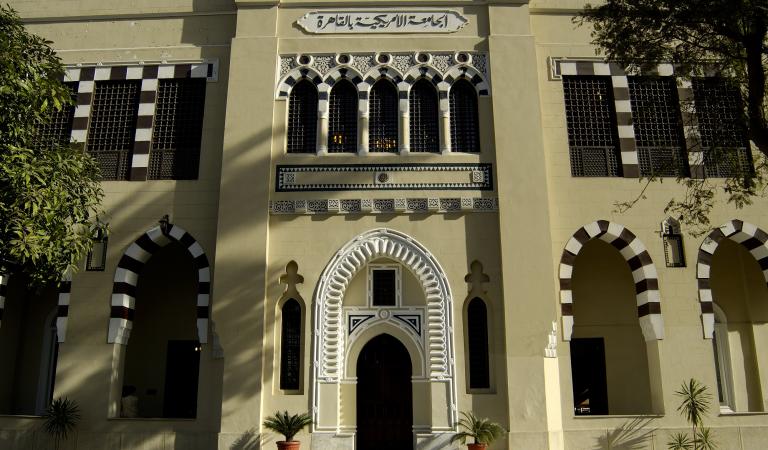The American University in Cairo (AUC) administration threatened Monday to fire some of its employees if they continued their strike that began Sunday along with more than 1000 students.
Walid Shebl, a housekeeping worker at AUC and leader in the university workers’ syndicate, said that human resources manager Samir Riad met with a group of the workers’ representatives and threatened that if they did not get back to work, in five days they would receive a letter of warning, and then after another five days, be fired.
Meanwhile, AUC President Lisa Anderson and other university leaders met with students’ and workers’ representatives and agreed to have a series of meetings over the next two days with all groups in order to discuss their demands.
More than 1000 AUC students and employees coordinated to launch an open-ended strike on Sunday, demanding cuts to soaring tuition fees and an increase in workers’ wages. While some hundred students camped out on campus Sunday, more students joined the strike on Monday.
“We refused the warning and told them that we don’t care and we will continue the strike until we take all of our rights,” said Shebl. “We are willing to take this risk for the sake of our families to live a better life.”
On the second day of the strike, students along with workers marched down the university campus chanting “thieves" – a reference to their belief that they are being charged too high tuition fees.
AUC workers had suspended a three-day strike last October after the administration promised to meet their demands – among them higher wages, job contracts, payment for extra working hours and the replacement of meals with money.
However, the administration fell short of meeting its promises, which led to the current strike, Shebl said.
The current strike’s demands include a day off on Saturday, just like the rest of the university staff, and replacing the meal provided to them by the university with some amount of money.
“We are the only staff that works on Saturdays at the university, however, we take the least wages,” said Shebl.
The meal given to workers by the administration is very poor and sometimes contains rotten food, from which some workers have suffered food poisoning, Shebl added.




